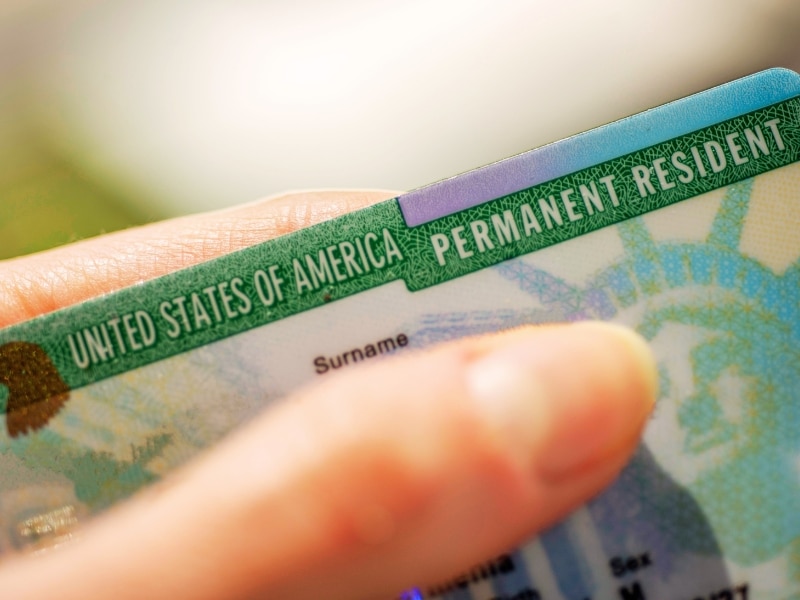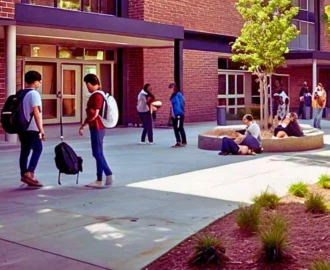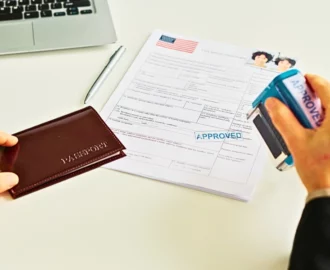If you want to speed up the green card process, you may be able to do so by submitting an expedite request to U.S. Citizenship and Immigration Services (USCIS) and taking other steps. Knowing the approach to take and how to speed up the green card process may help you accelerate your immigration petition, giving you permanent residency and the ability to put down roots.

Can a Green Card Be Fast-Tracked?
In some cases, you may be able to speed up the green card process by taking certain steps, including submitting an expedite request to USCIS. USCIS will consider your case and whether it qualifies for faster processing. However, you will need to show why USCIS should fast-track your green card with a valid reason and sufficient supporting documentation.
How to Speed Up the Green Card Process
When getting a green card, there are some specific ways to go about accelerating the process. These include the following steps:
Understand the Typical Process
Before submitting an expedite request in an attempt to speed up the green card process, you should know what the normal green card application timeline looks like. Keep in mind that you may need to wait for a certain period before you receive your green card, and you may not be able to get it any faster, depending on the circumstances.
As you learn more about how an immigrant becomes a U.S. citizen, you’ll likely find out about the various factors affecting processing times for green card applications.
For instance, common issues potentially affecting processing times may include:
Normal wait times for your category — Based on the nature of your immigration case and the type of green card you’re applying for, you should know what the average wait time is in your category. You can easily determine this online through the USCIS website. This will let you know what the wait time is for applications in your category.
Annual visa limits for specific categories — Depending on the type of green card or visa you want to obtain, annual limits may apply. For instance, you may be waiting for the approval of an employment-based green card application, in which case you may need to wait for one or more years. You may also not be in a top-priority category if you aren’t the immediate relative of an American citizen when applying for a family-based visa.
Submit an Expedite Request to USCIS
With a better understanding of the specifics of your case, you can determine if an expedite request is appropriate to submit to USCIS. If you decide to submit this request, you will need plenty of supporting documentation proving why you warrant an expedited green card process.
The various circumstances when you may succeed in speeding up your green card application through USCIS could include:
Error on the Part of USCIS
Sometimes, USCIS may be directly behind a delay because of an error during processing. If you submit an expedite request and believe an error was the reason for a delay, USCIS may discover this mistake, approve the expedite request, and correct the error.
If USCIS committed an error, you must gather proof of this. For example, you might be able to show that USCIS entered incorrect data or validity dates that negatively affect your application.
If a Person or Company Experiences Severe Financial Loss
You may be able to submit an expedite request if you or your business sustain substantial financial loss. However, you will only qualify in this case if this financial loss isn’t because you failed to either respond to requests for more evidence or file benefit requests in a timely manner.
You may experience financial loss as a person as a result of losing your job in some cases. One reason for this might be the inability to emigrate or relocate for a new job that results in lost employment and subsequent loss. Meanwhile, your organization might suffer serious losses if your business is without the help of immigrant employees who need a green card.
Humanitarian Efforts and Emergencies
Another reason for submitting an expedite request could be either humanitarian efforts (i.e. human welfare) or emergencies.
Emergencies in these circumstances could include when individuals face a safety risk because of a breach of confidentiality, or national emergencies that warrant faster approval for employment-based green card applications. Conversely, vacations do not count as emergencies in these instances.
Meanwhile, a humanitarian effort may include:
- Death in the family
- Illness
- Extreme living conditions
- An urgent need for medical care
- Disability
U.S. Government Interests
Certain U.S. government interests may also warrant expedited green card processing.
For example, your case might involve national security or public safety interests that agencies like the Department of Defense or Department of Homeland identify. However, if your case involves U.S. government interests, they must be urgent enough to make expedited processing critical.
In these cases, the U.S. government would be responsible for proving that the delay of your green card application would compromise the interests of the nation.
Nonprofit Organizations Benefitting the Country’s Interests
Nonprofit organizations could request expedition for beneficiaries if they can prove that these individuals’ actions would further the nation’s social or cultural interests.
Some examples of these cases could include immigrant college professors needed for a beneficial cultural program to serve as key participants, medical experts who could contribute to the social progress of the nation through critical research or developments of medical treatments, or religious organizations that require a qualifying immigrant to devote time to charitable efforts that benefit the country on a social level.
This is different from for-profit organizations that could simply show how a broad employee shortage might result in significant financial loss. Nonprofits must be able to show how the lack of specific experts and contributors could compromise the country’s social or cultural progress.
Go Through Premium Processing
You might qualify for premium processing in your case if you are entering the country on an employment-based visa. This type of processing applies to individuals filing Form I-140, Immigrant Petition for Alien Worker, or Form I-129, Petition for Non-immigrant Worker. The specific reasons for premium processing may include military deployment, necessary medical care, or family emergencies.
If you are able to go through premium processing, you will receive a response within 15 days of applying, and you must pay a fee of $1440 to $2500, depending on your case and the form you file.
Consider Consulting an Immigration Attorney
Another step you should consider taking in addition to submitting an expedite request is to reach out to a Chicago immigration lawyer. A qualified immigration lawyer can help you better determine what options are available to you and the nature of your specific immigration case. The factors of your case could help you decide whether to submit an expedite request, simply wait for the process to complete, or take another course of action.
When seeking the help of an immigration lawyer, you should try to find one with a focus in your specific type of case. For example, if you’re applying for a family-based green card, you would want to look for a family immigration lawyer who knows these cases well.
A lawyer may be able to help you determine what the average wait time is for green card processing in your category. Additionally, they can help identify potential reasons for submitting an expedite request that may successfully accelerate the green card process. If you are able to submit a request, your attorney may help you gather any necessary documentation to support your request. Even if you don’t qualify for an expedite request, an attorney could let you know what other choices you have.
Ultimately, an experienced lawyer will let you know how to speed up the green card process and indicate what options you have in this regard.
Why Would USCIS Deny an Expedite Request?
USCIS is solely responsible for approving or denying expedite requests. You must have enough documentation to support your argument when submitting a request, or you may face denial.
There are several reasons why USCIS might deny your request, such as:
- You failed to file your request or application within the standard processing window
- You fail to submit sufficient supporting documentation and evidence that support your request
- Your request indicates that you filed an Employee Authorization Document (EAD) and want to use it for benefits such as immigration status changes
- You qualify for premium processing
Knowing how to speed up the green card process may help you receive a green card sooner as needed, or you may discover other options that can help you succeed with your immigration case. In any case, it’s important to know what processing times and categories specifically apply to you, the reasons that may warrant an expedite request, and when to speak to an attorney about your case. Taking the right steps may enable you to obtain your green card sooner.




